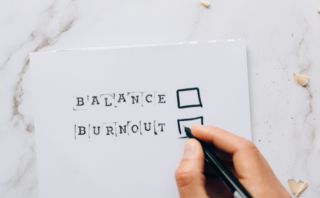If you’ve ever laid awake at night unable to switch off your thoughts, only to wake up feeling more tired and anxious the next day, you’re not alone. Many people find themselves caught in what psychologists call the sleep–stress cycle—a loop where poor sleep increases stress and anxiety, which in turn makes it harder to get quality rest. Understanding this cycle is the first step in breaking free from it.
How Sleep Affects Mental Health
Sleep plays a vital role in emotional regulation, memory processing, and overall brain health. During deep stages of sleep, your brain essentially clears out “mental clutter”, helping you feel more resilient and focused the next day. But when sleep is disrupted, your ability to manage stress and regulate emotions drops significantly.
Research has shown that even a single night of poor sleep can increase activity in the amygdala—the part of the brain involved in fear and anxiety responses. In people with ongoing sleep issues, this can lead to persistent feelings of worry, irritability, and even panic.
How Anxiety Affects Sleep
The other side of the cycle is just as problematic: heightened stress or anxiety often makes it harder to fall and stay asleep. Racing thoughts, muscle tension, and an overactive mind can keep you awake for hours, even when you’re physically tired. Over time, many people start to associate bedtime with stress, creating a psychological barrier to sleep that becomes harder to overcome.
This is especially true in uncertain or high-pressure periods—whether it’s a big life transition, work stress, or the general overwhelm of modern life.
Recognising the Cycle
Common signs you might be stuck in the sleep–stress cycle include:
- Difficulty falling asleep or waking during the night
- Feeling tired but “wired”
- Waking up unrefreshed, even after 7–8 hours of sleep
- Heightened anxiety or mood swings during the day
- Dreading bedtime or developing negative thoughts around sleep
Left unchecked, this cycle can contribute to more serious mental health concerns such as depression, generalised anxiety disorder, and burnout.
What You Can Do
The good news? There are practical and psychological strategies that can help.
1. Create a Wind-Down Routine
Start winding down at least 30–60 minutes before bed. Ditch screens where possible, dim the lights, and engage in calming activities like reading, stretching, or journaling. This signals to your brain that it’s safe to rest.
2. Address Racing Thoughts
Cognitive behavioural therapy for insomnia is a well-researched approach that helps shift unhelpful thinking patterns around sleep. A psychologist trained in CBT can guide you in managing anxious thoughts and building confidence in your ability to sleep.
3. Keep a Consistent Sleep Schedule
Your body thrives on routine. Try to go to bed and wake up at the same time every day—even on weekends. This strengthens your body clock and improves sleep quality over time.
4. Watch the Sleep Saboteurs
Caffeine after midday, alcohol in the evenings, and late-night screen time can all impact the depth and quality of your sleep. Keeping these in check can make a big difference.
5. Reach Out for Support
Sometimes sleep and stress challenges don’t resolve on their own. Working with a psychologist can help you better understand your sleep patterns, manage anxiety, and feel more in control. At our clinic, we offer support for both adults and children dealing with sleep-related issues.
Final Thoughts
Breaking the sleep–stress cycle takes time and self-compassion, but it is absolutely possible. With the right tools and support, you can regain quality rest—and with it, greater emotional balance and clarity. If sleep has been a struggle for you or someone in your family, don’t hesitate to reach out. We’re here to help.
At Mind Profile Psychology, we offer personalised therapy services to help you manage your stress and improve your sleep habits.
Contact us to book in for a FREE 30 Minute Introductory Session, where you can discuss your concerns with a fully registered psychologist.
Mind Profile Psychology – Servicing the Ingleburn, Campbelltown, Camden and Macarthur Area.
Telehealth Services Available Australia Wide, International Clients Welcome.




